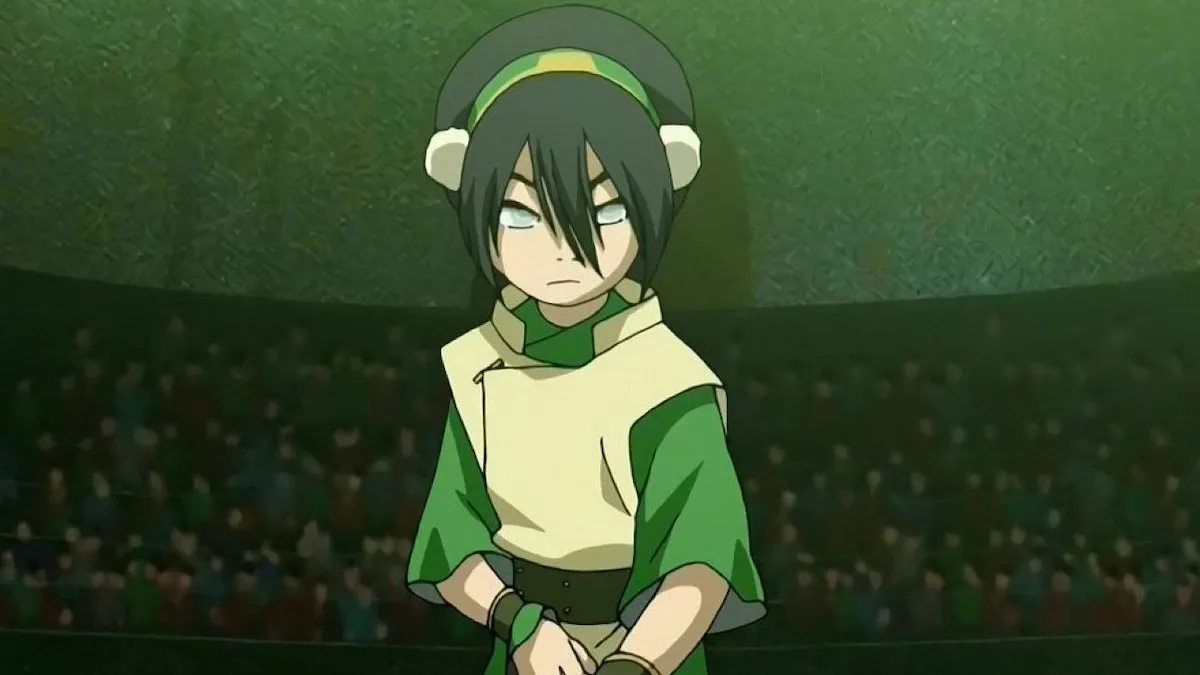Netflix must perfect ‘Avatar: The Last Airbender’s most important character in season 2

Netflix’s Avatar: The Last Airbender live-action was quickly renewed for two more seasons following the animation’s re-adaption for the small screen in 2024. As the streaming service prepares to dive deeper into Book 2 and 3 of Avatar, they must be prepared to flawlessly introduce one of the series’ most iconic characters once more.
Variety confirmed that Miya Cech will take on the role of Toph Beifong, leaving Blind Band’s grand debut to be an exceptionally crucial undertaking for Netflix’s Avatar crew. Avatar: The Last Airbender has faced mischaracterization in the past regarding how beloved characters have faired in live-action. M. Night Shyamalan’s eternally disgraced movie was a masterclass in disrespecting source material, yet Toph was spared from being distorted through Shyamalan’s vision. As for what the future holds? That’s up to Netflix to decide.
Understanding Toph only on a surface level would limit Netflix from delivering the most authentic version of the Earthbender, and the streaming platform mustn’t cheapen the depths of her story. While it’s not a concern that the creative team will overlook Toph’s blindness, it’s dire that Avatar understands that she isn’t condensed down to her visual impairment.
Toph is more than her Earthbending abilities and spunky personality
Toph was a groundbreaker (literally, figuratively) in Nickelodeon’s Avatar: The Last Airbender when it came to how blind characters were written into pop culture. Even more so, the original Avatar series made strides towards inclusion in children’s programming, as blind characters weren’t commonly featured in cartoons. Netflix is responsible for reiterating that Toph’s sightlessness isn’t her weakness, nor did it stop her from achieving her goals.
Toph’s inspiring sense of perseverance and sheer grit have rooted themselves in her personality and reflect her growth while battling loneliness. Her strong-willed attitude shatters the generational trauma that was placed upon her by overprotective parents, and it’s detrimental that the Netflix show focuses on how Toph can overcome her own past. She, alone, determines her fate. Rarely did she waver when it came to proving her strength, and her toughness is a key component of what makes Toph so unique. When bringing the character to life, Netflix cannot simply revolve around her Earthbending abilities and spunky sense of humor. They must commit to all of Toph and allow her to embrace the sense of vulnerability she learns to accept over time.
Netflix shouldn’t choose to rely on Toph for comedic relief alone, or they’ll be sacrificing an honest depiction of her character for the sake of bending her to fit their mold. Previous backlash was sparked after Avatar: The Last Airbender omitted Sokka (Ian Ousley)’s sexism, and it’s easy to worry that the streaming series might forget that, at times, Toph could be serious or straightforward with her opinions. Essentially, Netflix should let Toph be bull-headed and combative when she’s standing her ground.
Netflix, please don’t force Toph into an unnecessary romantic relationship
It’s expected that Netflix strikes the chord of Toph’s well-rounded personality instead of favoring some aspects of who she is over others. Contrary to others in Avatar: The Last Airbender, Toph wasn’t really an outright affectionate character. Her refrain from being a love interest was another distinct aspect of her role in Avatar, and Netflix needs to accept this. Pushing Toph into an on-screen relationship would be a bold, unwelcome creative choice.
Interestingly, Toph was initially intended to be a sixteen-year-old boy designed to rival Sokka throughout Avatar: The Last Airbender. Instead, she unapologetically embraced her androgynous personality throughout the series naturally. Easily perceived as a “tomboy,” Toph changed how more masculine women challenged stereotypes in entertainment. Toph aligned with the tomboy archetype without needing to prove her masculinity or femininity and instead took pride in her sense of self. Netflix cannot overlook how Toph has carried herself, and how she emphasized her identity over how she appeared to others.
Only recognizing Toph as the “tomboyish” member of the Gaang could question how Netflix handled Toph as a whole. Even she said it herself — she’s not looking for anyone’s approval, and Netflix needs to remember this.
And who could forget about Toph’s raw power?
Atop the pressure for Netflix to take every aspect of Toph’s character into account, they also mustn’t skimp on how truly powerful she is. Despite her physical stature, Toph’s excellence in Earthbending contributed to how compelling she is, and Netflix can’t ignore how heavily she played into the “small but mighty” trope.
There’s hope that with Avatar: The Last Airbender‘s consistency of honoring martial arts, that Netflix will allow Cech to train in the Southern Praying Mantis style. Toph’s Earthbending in Avatar is expected to honor its Chu Gar roots. Without such specifications, Netflix risks losing parts of Toph’s originality, as she was the only Earthbender to adopt this distinct means of fighting. A nod to her metalbending wouldn’t be too bad, either.
The need for Netflix to dedicate as much time, care, and attention to Toph in live-action is the only way they can honor how impactful her time in animated series truly was. That originality and energy demands to be preserved. Toph was an invaluable member of the Gaang in the original show — representing anything less of her on small screens would be shameful. Regardless of Avatar: The Last Airbender season 2’s fate, Toph Beifong must be perfect.
Have a tip we should know? tips@themarysue.com